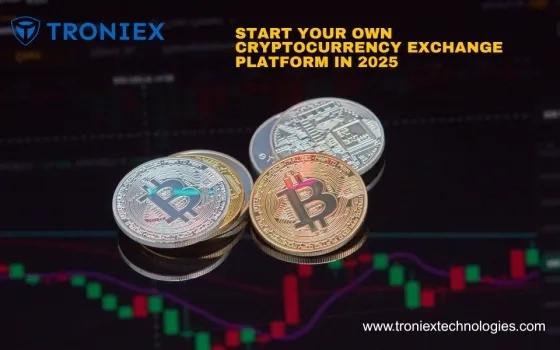While 2021 was a year of uncertainty due to disruptions in public health, supply chains, and geopolitics, 2022 witnessed a slower pace of things getting back to normal. However, amidst all this unpredictability, businesses have been able to gain greater clarity around the overall market trends and the forces that are driving growth.
The same scenario is proving true for the media and entertainment industry as businesses are gaining a better understanding of the fault lines that are altering their course. These fault lines are expected to impact the media and entertainment industry over the next five years. It is, therefore, vital to uncover the latest trends and insights into the entertainment and media market that are assisting brands in shaping their strategies for the future.
These top industry trends will help shape how brands can tap into shifting their consumer behavior, along with having significant implications for future campaigns. These overarching categories reflect the core themes of content, commerce, and community in the media and entertainment sector. Here is an overview of some top trends that will impact how we consume media and digital entertainment over the next 12 months.
Latest Trends in Media and Entertainment Industry
-
Innovation and Growth in NFT
Non-fungible tokens (NFTs) are emerging as a driving force for media companies to expand their content and IP engagement among their audience. This is triggering a future monetization model with markets maturing and the media sector welcoming these changes. Media and entertainment companies are collaborating and forming relationships with NFT specialists and marketplaces to design offerings that empower consumers to engage in a new way with their favorite characters, movies, and TV show.
-
Leveraging Metaverse to offer an Immersive Viewing Experience
Media and entertainment corporations are embracing and integrating emerging technologies to capture the metaverse mainstream and offer their audiences meaningful viewing experiences.
Gaming meets Entertainment: There has been a rise in acquisitions and partnerships between market-leading entertainment providers and gaming companies. They are joining hands to add gaming to their offerings. Integrating these new immersive gameplay technologies in the digital sphere will help generate new opportunities for entertainment companies to offer audiences new ways to interact and participate. This will also assist in increasing engagement time with the brand. Tech-forward consumers are responding positively to this new marketing tactic that is capturing their attention.
Artificial Intelligence (AI) to join forces with Virtual Reality (VR): Entertainment companies are increasing the use of AI and VR in their operations to deliver digital-first, immersive experiences as part of the evolution of the metaverse. Film and live entertainment players are testing omnichannel entertainment options through AI and VR. This will allow the audiences to consume entertainment in the virtual metaverse and across different digital platforms.
-
Mergers and Acquisitions (M&A) to Enjoy a Special Popularity
With the rise in the integration of technological developments within every operation, emerging sub-sectors are experiencing continuous support through mergers and acquisitions (M&A). With M&A volumes in the sector expected to increase, they are allowing companies to diversify their offerings to the audience and explore new international markets.
The US media and entertainment market is currently witnessing the largest value of M&A deals. High acquisition activity is being undertaken by major players acquiring gaming companies to extend their offerings and includes artificial intelligence (AI) and virtual reality (VR). At the same time, media and entertainment enterprises in the Asia-Pacific region are extending their operations through cross-sector transactions with commerce companies. This is enabling them to offer their audience a unified digital experience on singular platforms.
In the UK market, mergers and acquisitions (M&A) are experiencing a rise in deals for outdoor media assets. There has also been a confluence between the sports and media sectors.
-
More Streaming Services will be Launched
There has been a rise in video streaming platforms. In the last five years, online searches for Amazon Prime Video have increased by 231%. Video streaming (SVoD) revenue is anticipated to rise by over $139 billion per year by 2027. Hence it is no surprise that many media companies are introducing new streaming services. Paid over-the-top (OTT) platforms are emerging with incumbents, including Netflix, Hulu, and Amazon Prime Video.
The idea of defining a niche is working in the streaming world. A dedicated anime service, Crunchyroll, has been experiencing strong search growth. The platform has over 4 million paying subscribers. The niche streaming services platforms are seeing significant user as well as revenue growth.
At the same time, Disney is employing its deep back catalog to attract new viewers and subscribers to its platform. With its new programming, Disney+ also launched its flagship show, The Mandalorian. After its launch in November 2019, the platform surpassed 50 million subscribers in just five months. And the number has been rising ever since.
-
Digitalized Communities to take Center Stage
Digitalized communities are slowly entering the main stage. They are assisting businesses to change as well as reflecting on both technological and societal changes.
Social media platforms are embracing their algorithms to boost engagement. The live social media events are helping to spill over to other platforms, thus leading to the creation of new communities. Consumers can join global communities that align with their personal views on sustainability and responsibility. In 2023, brands will understand and integrate this motivation to form online communities and encourage engagement and adaptations. This will assist them in engaging with their consumers for future campaigns and connecting with their chosen audience.
-
Going Live will gain more prominence – Brands and platforms are integrating the 'go live' feature into their marketing strategy to build a strong online community and create interest through live events. This brings consumers together and encourages active engagement.
-
Responsibility to be at the center of every brand – Online communities are emerging through a common focus on brand responsibility. Platforms are offering new opportunities to share relevant content and measure its impact.
-
Social algorithms will enable users to do what they want– The online engagement scenario has changed. It is no longer about the follower list.
In Conclusion
2022 witnessed a distinct geopolitical landscape and a new and challenging economic outlook. This has forced brands and people to stop and re-evaluate numerous things. Through this uncertainty, they have also been able to witness the emergence of new consumer behaviors that have sparked profitable new media opportunities.
While there has been a stable overall growth pattern, there is underlying volatility. The pandemic accelerated shifts in consumer behavior and digital adoption are affecting the future growth trajectory for the sector. The sector is experiencing immense gain amid the pandemic, thereby facilitating sustainable growth. In 2023, the focus will be on filling the fault lines, thus opening new opportunities for entertainment and media industries and companies. The vast entertainment and media complex is growing more rapidly than the global economy.
2023 will bring along transitions in the content people consume. This shift to digital platforms is showing zero signs of slowing down, especially in the video-on-demand and gaming sectors. The changes in the economic landscape are enabling consumers to reevaluate the number of platforms as well as the costs associated with subscriptions.
With the media and entertainment industry moving faster from our living rooms to our pockets, companies are adapting to this shift to identify and understand where and how their consumers are engaging with the media mainstays.




























